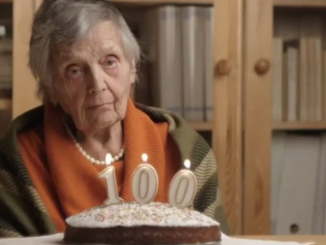Bob Newhart, the well-loved comedy legend known for starring in two famous sitcoms, has passed away at the age of 94.
His publicist, Jerry Digney, confirmed that Newhart died after a few short illnesses, according to Variety.
Newhart was a TV icon for many years, starring in two classic shows, The Bob Newhart Show and Newhart. In his later years, he also had memorable roles in the movie Elf and the TV show The Big Bang Theory.

Bob Newhart was born on September 5, 1929, in Oak Park, Illinois. He got his degree from Loyola University Chicago and served as a Staff Sergeant in the US Army during the Korean War from 1952 to 1954.
After the war, he worked as an accountant and an advertising copywriter. During this time, he developed his comedy routines. He became famous for his deadpan, soft-spoken style, playing the “straight man” in phone conversations, reacting to absurd situations.
This act made him a hit on the stand-up comedy scene and led to his hugely successful live comedy album, *The Button-Down Mind of Bob Newhart*. The album was the first comedy record to reach #1 on the Billboard Charts and became the 20th best-selling album of all time at that point.
It was also the first comedy album to win the Grammy Award for Album of the Year, and Newhart won the Grammy for Best New Artist. He continued to release successful albums throughout the ’60s and ’70s.
Newhart became a television staple and had his own variety show, *The Bob Newhart Show*, in 1961. Although it only ran for one season, it won the Emmy Award for Best Comedy Series.
His first sitcom, also called *The Bob Newhart Show*, was more successful, running for six seasons on CBS from 1972 to 1978. The show followed Newhart’s character, Chicago psychiatrist Dr. Bob Hartley, in his work and home life.

Newhart struck gold again with his second sitcom, *Newhart*, where he played Vermont innkeeper and talk show host Dick Loudon. This show ran from 1982 to 1990.
*Newhart* had one of the most memorable finales in TV history. It ended with Newhart’s character from *The Bob Newhart Show* waking up in bed next to his former co-star Suzanne Pleshette, suggesting that the entire *Newhart* series was just a dream.
Later sitcom vehicles like Bob and George & Leo had less success, running for just one season, but Newhart remained a fixture of television, with recurring roles on ER and Desperate Housewives.
He also had a memorable recurring role on the hit sitcom The Big Bang Theory as former science TV host “Professor Proton.” He won the Primetime Emmy Award for Outstanding Guest Actor in a Comedy Series for the role — the long-overdue first-ever Emmy Award for the TV legend.

Later sitcom vehicles like Bob and George & Leo had less success, running for just one season, but Newhart remained a fixture of television, with recurring roles on ER and Desperate Housewives.
He also had a memorable recurring role on the hit sitcom The Big Bang Theory as former science TV host “Professor Proton.” He won the Primetime Emmy Award for Outstanding Guest Actor in a Comedy Series for the role — the long-overdue first-ever Emmy Award for the TV legend.
Rest in peace to the comedy legend Bob Newhart, who gave us so many laughs and two classic sitcoms in his incredible career.
Please share this story in memory of Bob Newhart.
She is the TV personality who had more than 700 guys for sex.

Australian reality TV star Belinda Love Rygier says she had over 700 sex encounters and that her addiction to sex “ruled her life.”
She explained how she managed to overcome her addiction and lead a normal life.
Belinda “Love” Rygier, who made her television debut in the 2017 season of The Bachelor Australia, revealed that she has been single for 15 months and is a client of a recovery center.
The 38-year-old woman disclosed that her only purpose for going out six nights a week was to meet new sex partners.
When her addiction was at its worst, dating apps weren’t as publicly accessible, the Australian personality admitted.

Words from a Past Sexual Addict
When approached to speak on a radio program, Belinda said she “didn’t realize she had a problem until she healed from it,” according to Mirror.
The woman said, “After I recovered, I was positive that an unresolved trauma from my past caused my sex addiction.”
Despite the fact that her sex addiction had taken over her life, the woman maintains she was a “functional addict,” leading a wonderful life that functioned well and kept her secrets hidden.
The TV personality asserts that she has “lost count” of the number of men she has had sexual relations with over the years, but she is certain that the tally exceeds “seven hundred.”
She did, however, declare that she is “not ashamed” of the number of sexual partners she has had and that she still has a “high sexual desire.”
“The woman expressed that her desire was to feel beautiful, validated, and loved; men were great at providing me with the information I wanted to hear.”
Why is she not having sex right now?
Belinda said, “Sex is used for the wrong reason—quick or fleeting validation from others. Society has declined.”
She admitted that in the past, engaging in sexual activity required a strong emotional connection. “I’ll have sex again, but with someone I truly connect with this time.”
With thousands of fans, the TV star has become a social media “love guru,” routinely appearing on shows to impart life lessons to her audience.



Leave a Reply